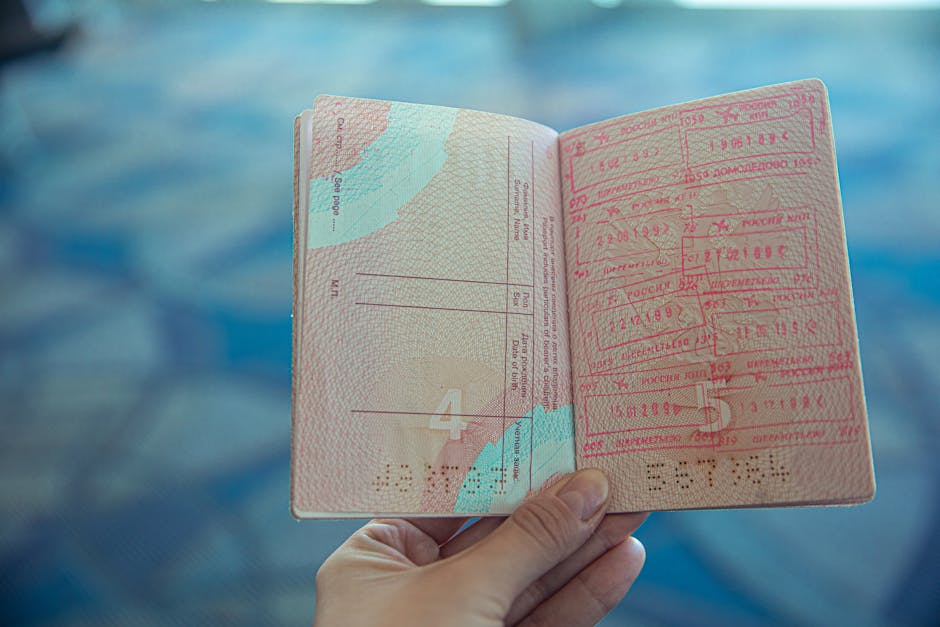Qatar Physiotherapist Visa
Understanding Qatar Physiotherapist Visa
This visa category falls under Qatar’s employment immigration framework. It is specifically designed for licensed healthcare practitioners. Therefore, applicants must meet strict professional and educational criteria. The process involves both the employer and the employee. Typically, the sponsoring healthcare facility initiates the application. Consequently, securing a valid employment contract is the first critical step.
Moreover, the Qatar physiotherapist visa process is governed by the Ministry of Public Health. They ensure all foreign healthcare workers meet local licensing standards. Additionally, the Ministry of Interior and the Ministry of Administrative Development, Labour and Social Affairs are involved. Understanding these roles is key to a smooth application. For detailed professional resources, consult our dedicated portal.
Qatar Physiotherapist Visa Benefits
Securing this visa opens doors to a rewarding career in a dynamic healthcare system. Qatar invests heavily in its medical infrastructure. Therefore, professionals benefit from state-of-the-art facilities and technologies. Additionally, the tax-free salary structure is a significant financial advantage. This allows for greater savings and financial growth.
Furthermore, employment packages often include generous benefits. These typically encompass housing allowances, annual flight tickets, and comprehensive health insurance. The country also offers a high standard of living and safety. For personalized guidance, consider an expert consultation to explore your opportunities.
How Qatar Physiotherapist Visa Works
The journey begins with a formal job offer from a Qatari healthcare employer. This employer acts as your sponsor. Next, they apply for initial entry permits and work visas. Subsequently, you must undergo a medical examination for communicable diseases. This is a mandatory step for all residency applicants.
Additionally, you will need to provide attested educational and professional certificates. This includes your degree, transcripts, and physiotherapy license. The International Labour Organization guidelines often influence these attestation requirements. Finally, your passport is submitted for the final Residence Permit stamp. This grants you legal status to live and work in Qatar.
Best Qatar Physiotherapist Visa Practices
Start the process well before your intended start date. Delays in document attestation are common. Therefore, initiate the attestation process with your home country’s authorities early. Furthermore, ensure all your documents are accurate and consistent. Any discrepancy in names or dates can cause significant setbacks.
Moreover, maintain open communication with your sponsoring employer. They are your primary point of contact for application updates. It is also wise to understand the local culture and regulations. The U.S. Department of Commerce trade information can provide valuable context on working abroad.
Qatar Physiotherapist Visa Implementation
Implementation involves a multi-stage process after receiving the job offer. First, your employer secures a work visa approval from the Ministry of Labour. Then, you can enter Qatar on an entry permit. Upon arrival, you will complete the medical test and biometric registration. Subsequently, your employer applies for your Qatari ID card, known as the QID.
This card is essential for all official transactions. Additionally, you must undergo a credentialing process with the Qatar Council for Healthcare Practitioners. This body grants you the license to practice. Understanding these steps, as outlined in resources like the UAE government employment regulations for regional context, is vital.
Advanced Qatar Physiotherapist Visa Strategies
For a more streamlined experience, consider pre-arrival preparation. Research and connect with professional networks for physiotherapists in Qatar. These communities offer invaluable advice and support. Additionally, familiarize yourself with the specific scope of practice and common treatments in the Qatari healthcare system.
Furthermore, understanding the contract details is an advanced strategy. Negotiate terms like contract duration, notice periods, and professional development opportunities. Being proactive can prevent future misunderstandings. Global standards from the World Health Organization workplace standards often inform local best practices.
Qatar Physiotherapist Visa Success Tips
Double-check every document before submission. Accuracy is non-negotiable in the visa process. Additionally, keep digital and physical copies of all paperwork. This includes your passport, photographs, and every certificate. Furthermore, be prepared for the medical test. This typically screens for diseases like HIV, tuberculosis, and hepatitis.
Moreover, patience is essential. Government processing times can vary. Avoid making any travel plans until you have your passport with the residency permit. For assistance with document preparation, you can schedule appointment with our visa specialists.
Future of Qatar Physiotherapist Visa
The future looks promising for healthcare professionals in Qatar. The nation’s ongoing development and focus on health tourism will sustain demand. Therefore, the visa process may become even more streamlined with digital integration. Additionally, continuous professional development will likely become more integrated into the licensing renewal process.
Staying informed about policy changes is crucial. Economic insights from institutions like the World Bank economic reports can help predict labor market trends. Embracing these changes will ensure long-term career success in the region.
Frequently Asked Questions
What are the main document requirements for the Qatar physiotherapist visa?
You need a valid passport, attested educational degrees, a professional license, a job offer, and a clean criminal record certificate. Additionally, passport-sized photographs and a medical fitness certificate are mandatory.
How long does the entire Qatar physiotherapist visa process take?
The timeline varies but typically takes two to four months. This duration depends on document attestation speed, medical test results, and government processing times.
Can my family join me on a Qatar physiotherapist visa?
Yes, after you obtain your residence permit, you can sponsor your family. This requires meeting a minimum salary threshold and providing suitable accommodation.
Is a license required to work as a physiotherapist in Qatar?
Absolutely. You must obtain a license from the Qatar Council for Healthcare Practitioners (QCHP). This involves submitting your credentials and passing any required assessments.
Who handles the visa application, me or my employer?
Your Qatari employer acts as your sponsor and handles the majority of the application process with government ministries. Your role is to provide all necessary documents accurately and on time.
What happens if my visa application is rejected?
The employer can often inquire about the reason for rejection. You may be able to reapply after addressing the issue, such as providing missing documents or correcting information.
Conclusion
The Qatar physiotherapist visa process is a detailed but manageable journey. It opens the door to a prosperous career in a world-class healthcare environment. Success hinges on preparation, accuracy, and patience. Therefore, meticulously gather and attest all required documents. Furthermore, maintain clear communication with your sponsor throughout.
Ultimately, the effort is a worthwhile investment in your professional future. Take the first step today by researching potential employers and understanding the requirements. Begin your application process with confidence and clarity.




